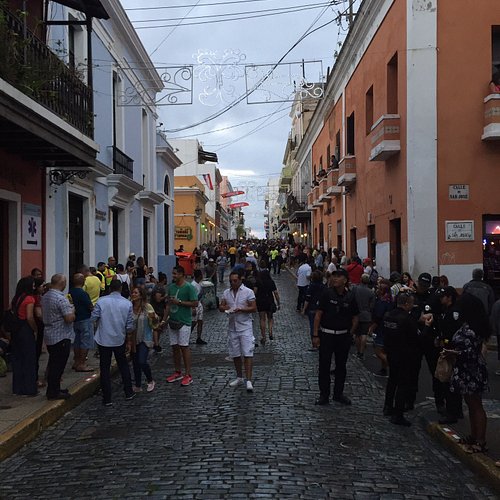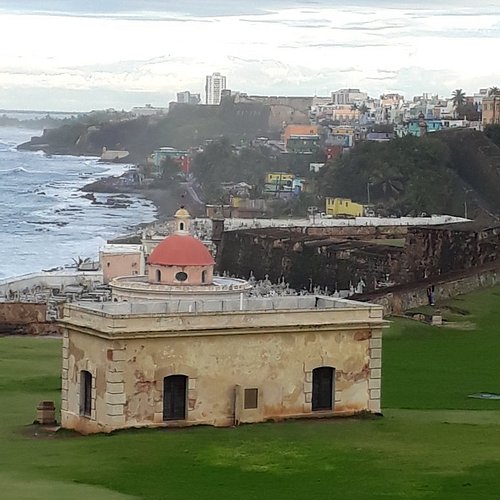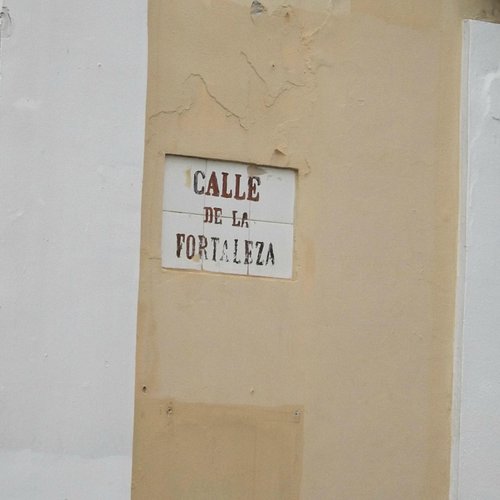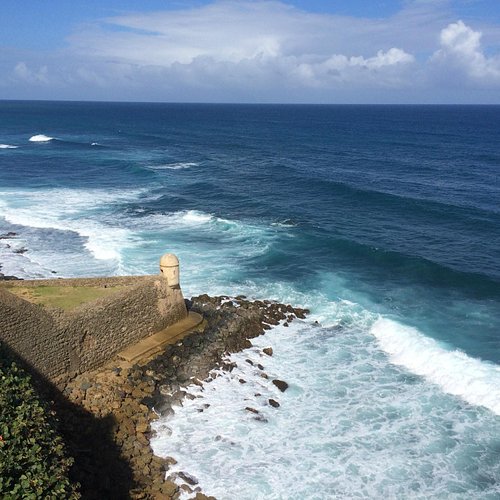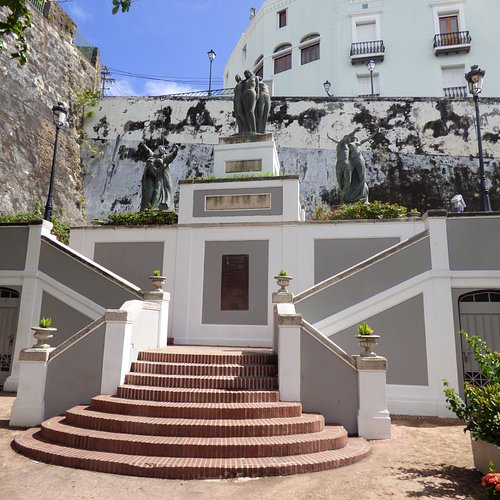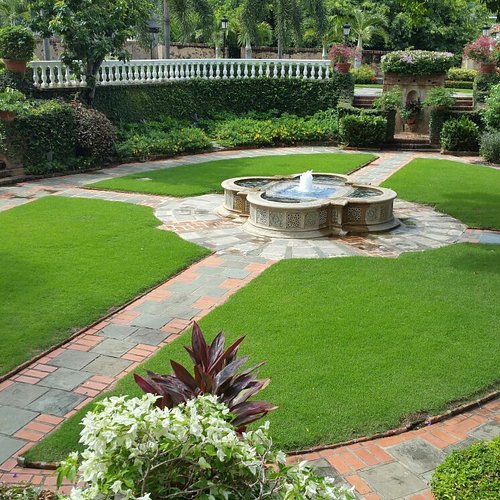Top 10 Historic Sites in San Juan, Puerto Rico
The festive city of San Juan is the perfect place to experience true Puerto Rican culture. Get to know its roots by exploring the vibrant neighborhood of El Viejo San Juan (Old San Juan), which consists mostly of Spanish colonial buildings. Flesh out your self-guided history lesson with a visit to El Castillo San Felipe del Morro, a 16th century citadel that’s a UNESCO World Heritage Site. Then reward yourself with a cooling dip at Luquillo or Carolina Beach, then a tasty tour of the Bacardi rum plant.
Restaurants in San Juan
1. Cuartel de Ballaja
Overall Ratings
5.0 based on 1 reviews
Located in front of Castillo San Felipe del Morro, the Cuartel de Ballaja was built from 1854 to 1864 in order to house the Spanish and Puerto Rican regiments in Old San Juan. After the 1898 invasion by the US Army, the US infantry occupied the Cuartel de Ballaja until 1936. During the Second World War, this structure became a hospital, and in 1976 the Puerto Rican government bought the building. Eventually, this beautiful structure was abandoned and decayed quickly. In 1992, as part of the commemoration of the 5th Centenary of the exchange between Europeans and the native peoples of the Americas, Ricardo Alegria--a famed Puerto Rican archaeologist-- proposed to remodel the Cuartel de Ballaja and create a museum dedicated to the Americas. Nowadays, the Cuartel de Ballaja is perfectly functional and houses the following: a dance school, a music school, the Museo de las Americas, the Puerto Rico Academy of the Spanish Language, and the State Office of Historic Conservation.
2. Bastion de San Antonio
Overall Ratings
5.0 based on 1 reviews
The San Antonio bastion was once a fortified construction next to Castillo San Felipe del Morro and it was meant as an added defense to the fort. In the 1800s, this bastion served as a guardhouse and as barracks for the soldiers. Nowadays, the San Antonio Bastion is one of the National Park Service's shops, where you can buy San Juan-themed souvenirs, books, and maps. El bastion de San Antonio (ahora la Casa de Guardia de San Antonio) fue una pequena fortificacion junto al Castillo San Felipe del Morro, y suponia reforzar la defensa al fuerte principal. En los 1800, esta estructura le sirvio de barraca a los soldados. Hoy dia es una de las tiendas del National Park Service, donde puedes comprar recuerdos de San Juan, libros, mapas, entre otros.
3. Antiguo Acueducto Rio Piedras
4. Old San Juan
Overall Ratings
4.5 based on 16,304 reviews
Consisting of 400 restored buildings from the 16th- and 17th-century Spanish colonial period, this area in San Juan is steeped in history with an old-world and romantic European charm.
Reviewed By MaryannL521 - Fair Oaks, United States
Old San Juan is beyond charming. There is so much history here, great architecture, landmarks, cobblestone streets, wonderful food, great museums, El Morro and San Cristobol, beautiful parks and plazas and lovely residential streets. We walked everywhere but also rode the free trolley. There are three trolley lines that will take you almost anywhere in the old city. A good place to begin is to stop at one of the many Tourist Information Centers. We found the one directly across from Pier One to be the most helpful. Here we got a list of museums and their hours as well as a self guided walking tour and directions to take the ferry to Casa Bacardi. Don't miss the San Juan Gate, Fortaleza Street, the cathedral, the San Juan Historic Cemetery and the Paseo de la Princesa. Enjoy!
5. 104 Calle La Fortaleza
6. Castillo de San Cristobal
Overall Ratings
4.5 based on 4,595 reviews
This massive 27-acre series of fortifications is the largest the Spanish built in the New World.
Reviewed By JeanneCristello11 - Philadelphia, United States
Castillo de San Cristobal was built by Spain to protect San Juan from land attacks, and create a crossfire with Del Morro across the bay. Finished in 1765, San Cristobal was built after attacks by England and Holland to strengthen the Spanish position. A self-guided tour will allow you to see the historic rooms, cannons, and tunnels of San Cristobal. Poking out from walls around are the famous San Cristobal Garita (sentry boxes). These Garita are a symbol for the island and show the strength, importance, and pride of Puerto Rico. San Cristobal offers stunning views of San Juan, included below. Tickets to San Cristobal or Del Morro can be used to enter the other fort.
7. La Princesa Gallery
8. La Fortaleza - Palacio de Santa Catalina
Overall Ratings
4.5 based on 210 reviews
Visitors can take guided tours through this World Heritage Site, a 40-room mansion completed in 1540 that was used to defend against foreign invaders.
Reviewed By lobstaluva - Springfield, United States
This beautiful blue mansion, facing San Juan Harbor, is a UNESCO World Heritage Site. Built in the 1500s as a fortress, it is now the residence and working offices of the Governor of Puerto Rico. Half hour tours are free of charge! It includes parts of the mansion, chapel, dungeons and gardens with great views. In 1846 the facade was changed to give it a more palatial look instead of military. It is the oldest functioning executive mansion in the Western Hemisphere.
9. Catedral Basilica Menor de San Juan Bautista
Overall Ratings
4.5 based on 1,390 reviews
Built in 1540 and the site where the body of Ponce de Leon is entombed, the the Catedral de San Juan is an authentic and rare New World example of medieval architecture.
Reviewed By orioles833 - West Chester, United States
Stunning collection of paintings, sculptures, crosses, altars, stained glass windows, and an assortment of other items inside a beautiful, historic Catholic church. There's something special about walking inside a 500 year old building, and it's even more profound when it's a church. We only spent about 45 minutes here, as we were short on time, but we could have easily spent 2 hours here in total awe of such a amazing place.
10. San Juan National Historic Site
Overall Ratings
4.5 based on 7,056 reviews
Constructed to defend the San Juan coastline during the 17th and 18th centuries, this dramatic fortress rises 140 feet above the sea on a rocky promontory, and is composed of six huge levels of ramps, barracks, dungeons, turrets, towers and tunnels.
Reviewed By Cfbslg - Kankakee, United States
We enjoyed touring the forts of Old San Juan. The National Park Service has done well keeping the history of the forts accessible to visitors at an entrance fee of $7 per person for the two larger forts. However there are steep ramps and stairs to get to all levels. Make sure you take plenty of water and enjoy the scenery!

